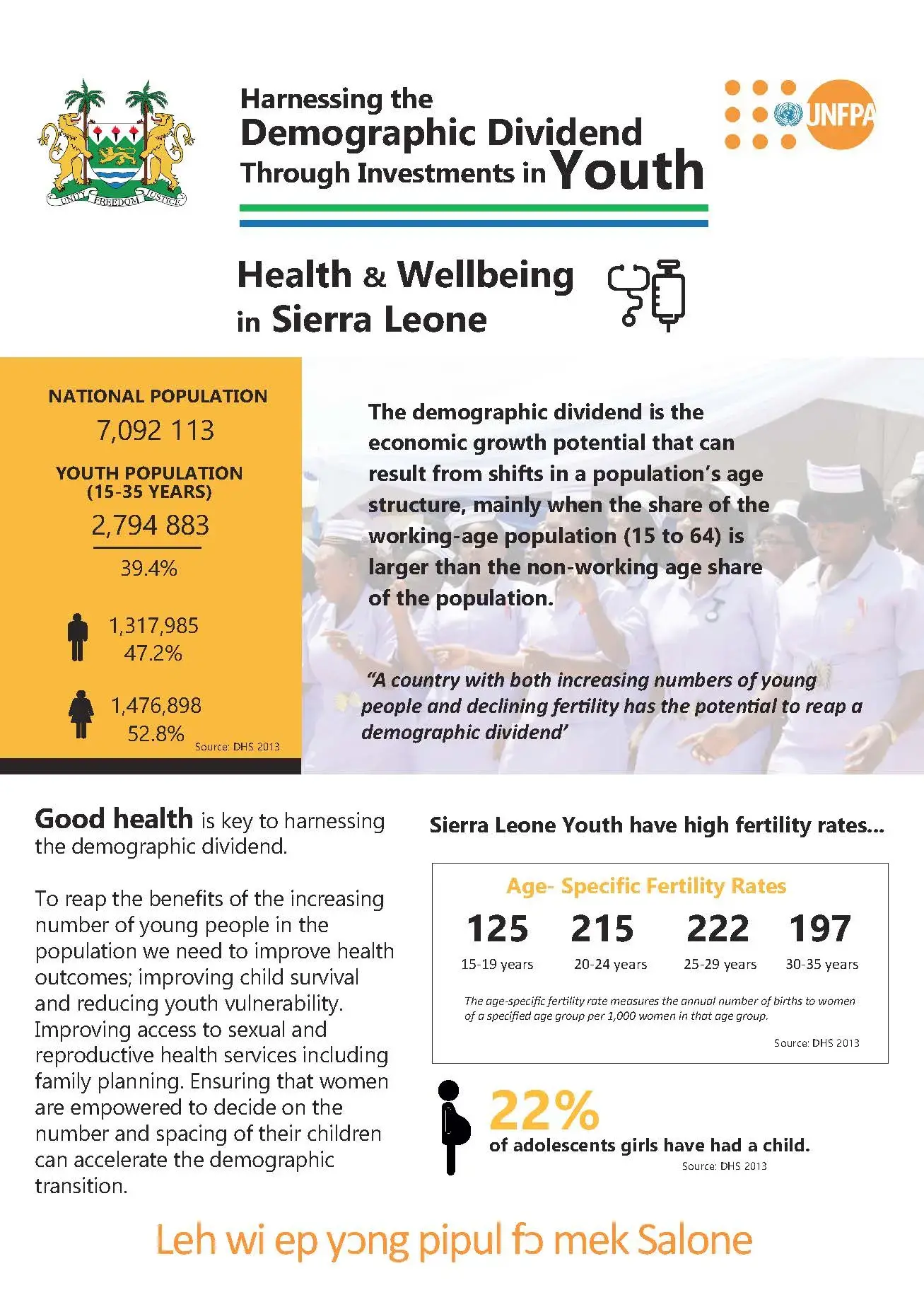OVERVIEW
The demographic dividend is the economic growth potential that can result from shifts in a population’s age structure, mainly when the share of the working-age population (15 to 64) is larger than the non-working-age share of the population (14 and younger, and 65 and older).
Countries with the greatest demographic opportunity for development are those entering a period in which the working-age population has good health, quality education, decent employment and a lower proportion of young dependents. Smaller numbers of children per household generally lead to larger investments per child, more freedom for women to enter the formal workforce and more household savings for old age. When this happens, the national economic payoff can be substantial. This is a "demographic dividend."
Necessary investments
Realising a demographic dividend requires multiple investments. The most essential are building the capabilities of people and ensuring their rights and freedoms to achieve their potential. Young people need the chance to gain the education and experience to succeed in a competitive global workplace, which demands more skills, education and technical expertise than ever before.
Tragically, the chance to realize one's potential is often derailed, particularly for millions of girls, who are pushed from school, subjected to child marriage, early and unplanned pregnancies, poor access to health care and limited education. When large numbers of people find themselves trapped in this trajectory of restricted opportunities, poor health and limited capabilities, there can be no demographic dividend: An age structure with fewer dependents is unlikely to occur, and each person’s ability to develop their capabilities, save and invest, be resilient in the face of crises and take the risk to innovate will be permanently undermined. The fulfillment of human rights – including sexual and reproductive health and reproductive rights – is therefore essential for any society to achieve a demographic dividend.
What needs to happen?
Achieving a demographic dividend requires that each country understand the size and distribution of its population, its current and projected age structure, and the pace of population growth. A growing number of analytic tools are available for such “population assessments,” shortening the time and resources needed for a situation analysis of national circumstances. National needs must be matched to a sequence of short- and medium-term investments that assure the rights of all young people to plan their lives, be free of violence and trauma, be assured of essential freedoms and reproductive rights, and have access to quality education and mentoring.
Dividends will be constrained without simultaneous investments in decent job creation, good governance, infrastructure and a functioning business climate. But all progress will be constrained if the population is under-prepared, and every person – particularly every girl – cannot pursue her education or navigate her transition to adulthood assured of her human rights. Such assurance includes the freedom to decide when and whom to marry, the timing and number of her children, and the security to balance work and family life.
In Sierra Leone
UNFPA supports the Government of Sierra Leone to engage youth in the planning and implementation of development strategies. As a result, youth will be equipped with relevant information and services to empower them to act as change agents to transform, and improve society and harness the demographic dividend.
The Government of Sierra Leone has committed to support the development of a roadmap to support the achievement of the Demographic Dividend which consists of four key areas:
Education and Skills Development
Providing quality Education and Skills Development (particularly female education and empowerment, and improving learning opportunities are key to developing a well-educated, skilled, and innovative labour force.
Good Health
Good health is key to harnessing the demographic dividend.
To reap the benefits of the increasing number of young people in the population we need to improve health outcomes; improving child survival and reducing youth vulnerability. Improving access to sexual and reproductive health services including family planning. Ensuring that women are empowered to decide on the number of children can accelerate the demographic transition.
Employment and Entrepreneurship
Investment in Employment and Entrepreneurship targeting both female and male youth is critical to ensure Sierra Leon can harness the demographic dividend. Engagement of youth in the formal or non-form sectors will bolster the capacity of the nation to fully utilize their skills and energies.
The lack of critical relevant skills limit the capacity of young people to take advantage of existing market conditions. As a prerequisite for economic growth it is key that there is a skilled labour force and convenient working conditions.
Good Governance
Good governance, promotion of human rights and youth empowerment is needed to ensure the efficient delivery of public services, minimize wastage of public resources and curb corruption.



